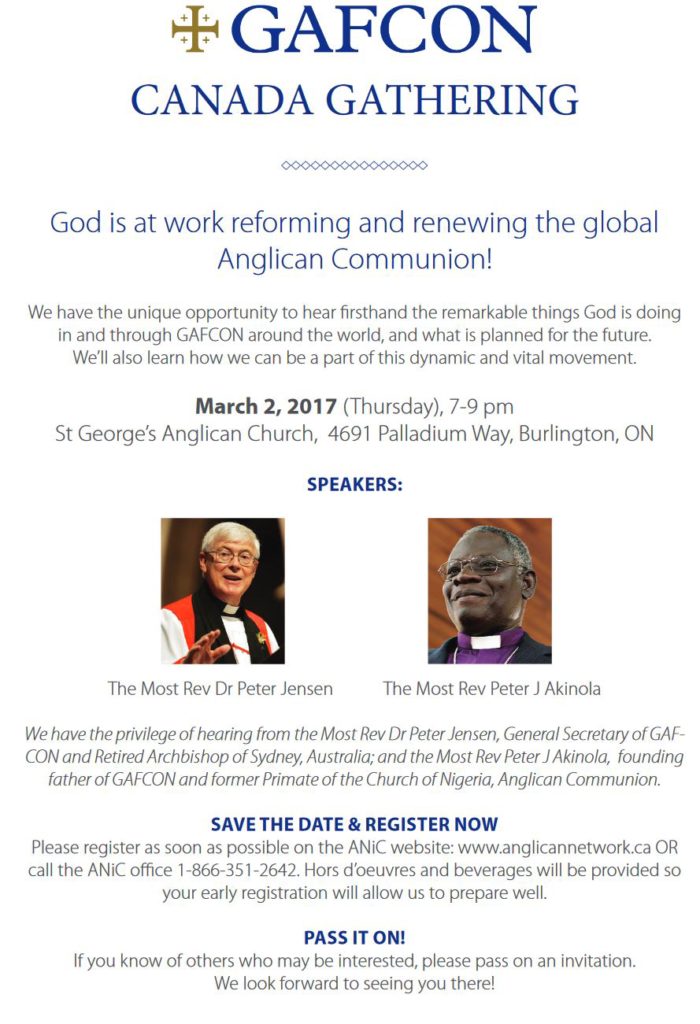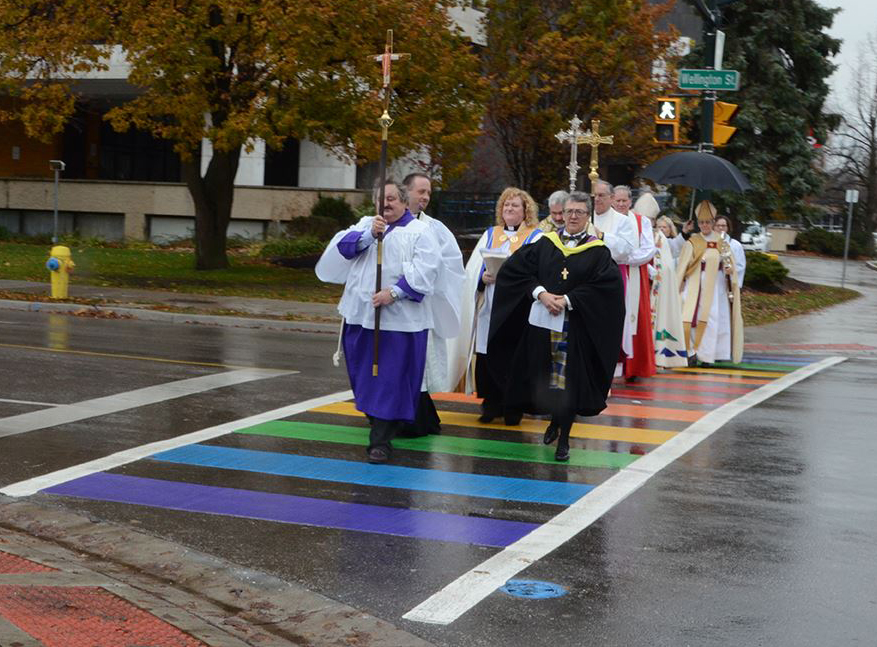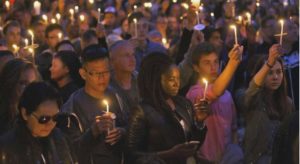From here:
A coalition of seven mission agencies within the Church of England said: “We understand President Trump’s desire to protect America from extremism but we do not accept that it is ever right to discriminate against people simply on the basis of their ethnicity, religion or country of origin. We call on the British and other governments not only to seek exceptions for its own citizens but justice for all. We call on the US Government to reverse its current policy and to renew its commitment to freedom for all.”
The statement follows criticism of the immigration measures from church leaders.
The Archbishop of York, Dr John Sentamu, issued a statement expressing shock at the new restrictions: “It is extraordinary that any civilised country should stigmatise and ban citizens of other nations in the matter of providing humanitarian protection. In Christ, we are called to welcome the stranger especially when in desperate need,” he said.
In the United States there have been statements from a number of Episcopal dioceses. In Massachusetts, a joint letter from 17 church leaders, opposing the executive action, received the backing of three Episcopal Bishops : “We grieve this decision to limit refugees, as it will cause further suffering, not just to our fellow Christians escaping persecution, but all refugees fleeing violence.”
In a statement, Bishop Marc Handley Andrus of California said: “We must honour the contributions of immigrants who are here to seek peace and stability for their families. Please join me in praying for our nation and for a change of heart for President Trump and his administration.”
Bishop James Mathes of San Diego wrote : “the last nine days have been a disquieting and dizzying display of presidential action in Mr Trump’s first days in office. The executive order is an affront to our sense of fairness and equity…President Trump’s actions are unacceptable and un-American. They do not represent who we are as a people. We must recover our senses. It is time to speak out in the name of all faiths and our national identity as a people united in our diversity. That is our gift to the world.”
In Washington, Bishop Mariann Budde wrote: “The list of alarming actions and statements from President Trump’s first week in office takes our collective breath away.”
Bishop Robert Hirschfeld of the Episcopal Church of New Hampshire said: “The Executive Order tightly restricting immigration and refugee resettlement based on religious identity has done very little but intensify global tensions while worsening human suffering among those who honour and admire this nation. What is called for is competent diplomacy, informed statesmanship and a clear commitment to the biblically informed ideals of hospitality to the stranger and the oppressed. That these values are being so cavalierly rejected in favour of rash and fear-based edicts not only violates the dignity of those immediately affected, but also damages our own reputation.”
In contrast, here is another view from Franklin Graham:
There have been a lot of protests and discussion about President Donald J. Trump’s executive action on immigration. Some people seem to have forgotten that the priority of the president of the United States is protecting the Constitution and the safety of Americans. That’s exactly what President Trump is trying to do. Taking action to secure our borders had to start somewhere. Is it perfect? Maybe not, but it is a first step. As they work on solutions during this 90-day travel ban, unfortunately there are some innocent families caught in this time of transition.
I think that a thorough vetting process really needs to apply to people coming into the U.S. from all countries—not just 7. We have to be sure that the philosophies of those entering our country are compatible with our Constitution. If a person does not agree with our principles of freedom, democracy, and liberty, which we cherish, they should not be allowed to come. Without question, Sharia law is not compatible.
Some are also criticizing Christians who support the president’s position on immigration—and I’m one of those being criticized. But we have to realize that the president’s job is not the same as the job of the church. As Christians we are clearly taught in the Bible to care for the poor and oppressed. At Samaritan’s Purse we have been working in the Middle East for over 30 years. We’ve provided things like food, heaters, blankets, coats, shelter plastic, and more for tens of thousands of refugees there and in other places around the world. We just opened a 55-bed field trauma hospital in northern Iraq where we’re treating Muslims who are being wounded by other Muslims in the fight over Mosul. As Christians we are commanded to help all, regardless of religious background or ethnicity, like the Good Samaritan Jesus shared about in the Bible. Our job is to show God’s love and compassion. I believe the best way to help is to reach out and help these people in their own countries. I support the establishment of safe zones inside Syria and Iraq that would be protected by the international community until a political solution is found. We need to pray for political solutions that would bring peace and allow them to return to their homes as they desire.
It strikes me that, as is so often the case these days, the Anglican church, having parted ways from the Gospel of Jesus sometime ago, has nothing left to occupy its time and dwindling resources but political agitation; leftist political agitation.
Consequently, Anglican bishops when dealing with their own organisation engage in endless conversations and indabas which are rarely, if ever, punctuated by any action at all; but when giving the state the benefit of their collective wisdom, howl stridently for – action.
Anglicans take note: Franklin Graham is correct, God has different purposes for church and state. That, of course, presumes Western Anglicanism is still a church.
Like this:
Like Loading...
 When I attended the last talk Peter Jensen gave in Burlington, I discovered to my delight, that he likes to insult people and even entire nations – he informed me the Welsh are no good at rugby, for example – although he insists that for Australians, insults are an expression of endearment. In case anyone is wondering, I’m not Australian.
When I attended the last talk Peter Jensen gave in Burlington, I discovered to my delight, that he likes to insult people and even entire nations – he informed me the Welsh are no good at rugby, for example – although he insists that for Australians, insults are an expression of endearment. In case anyone is wondering, I’m not Australian.


 Candlelight vigils will be held in numerous cities in wake of the terrorist attack at a Quebec mosque.
Candlelight vigils will be held in numerous cities in wake of the terrorist attack at a Quebec mosque.